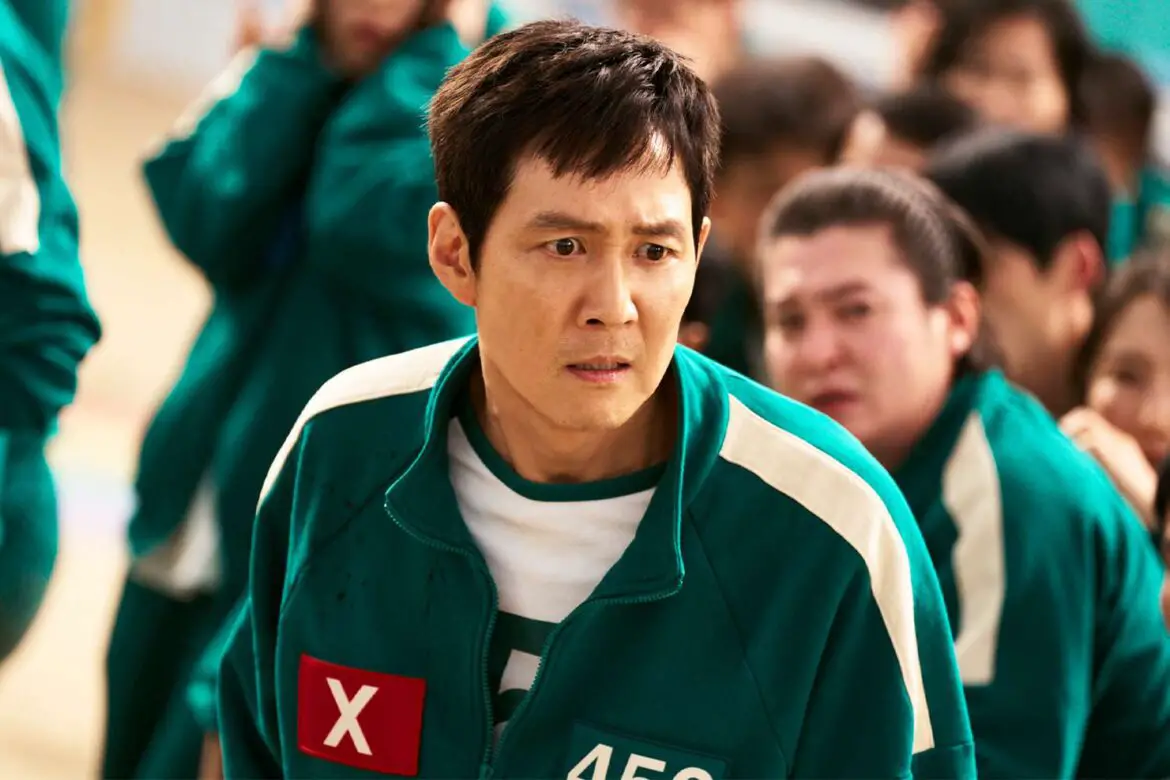Season 1 of Squid Game—the South Korean dystopian-action-thriller-genre-buster that produced a mound of bullet-ridden corpses and became a global phenomenon—was essentially about following the rules, making a plan (risky or not) and hoping and sweating your way to survival and then, walking away with oodles and oodles of money.
Now that the wildly anticipated second season has arrived (more than three years after season 1), the question is whether and how the show has applied these lessons to itself. The television-programming sea, after all, is full of sharks: How daring can Squid 2 be (or afford to be) without falling into the jaws of preposterousness? (And don’t we risk this in our own daily lives? But never mind.)
The show, as fans know, is built on a pretty daring concept to begin with. Let’s refresh:
Hundreds of people saddled with insurmountable debts (well, that’s not so outlandish) are lured to a secret location to participate in what you might think of as Satan’s notion of musical chairs or maybe a potato-sack race out of Dante’s Inferno. The contestants play elaborate, lethal versions of children’s games, with the losing players being gunned down by a team of armed enforcers in bright pink jumpsuits. They look like assassins hired by Barbie.
As the deaths accumulate, a cash jackpot, dangled above the players in a huge plastic piggy bank, grows and grows. Unfortunately, Squid Game aims to narrow the crowd down to only one survivor/winner, who then walks off with the prize. The dead losers, meanwhile, are mined for organs to sell on the black market. This, perhaps, is what host Peter Marshall on the old Hollywood Squares meant when he used to refer to “lovely parting gifts.”
If you happen to be the champ, it ought to be a glorious experience—to have come out not only in one piece but fantastically rich. Goodbye forever to those Squid Game bunkbeds and blood-pooled floors! But then you’re likely to have a nagging sense of guilt because your good fortune, or luck, has come at the expense of so many other lives—people who weren’t really all that better or worse than you. You might also resent the anonymous monsters who set up this game and watched it unfold. The whole thing makes Gladiator 2 look like an evening of mahjong.
Never miss a story — sign up for PEOPLE’s free daily newsletter to stay up-to-date on the best of what PEOPLE has to offer??, from celebrity news to compelling human interest stories.
Now we have the new season’s seven episodes—and how is the game going?
No Ju-han/Netflix
Well, we can say that the show’s creators have avoided the sharks. On the other hand, the show seems to be playing it a bit safe, which is worrisome. Season 2 doesn’t top the shocking novelty of the first season, made iconic by that giant mechanical girl in charge of a merciless game of red light, green light. Season 2 is a solid, logical, well-scripted bridge—possibly more, but not by much—stretching forward to what’s been announced as a third and final season.
The show, with its large but hidden agenda, is a bit like ABC’s puzzle-drama Lost, which had a constantly pivoting narrative that was often brilliant, occasionally frustrating and, in the end, dunderheaded. Squid Game certainly couldn’t be called dunderheaded—I don’t think it will ever be. Both seasons tackle a wide range of pressing social issues—inequality of wealth, prejudice, capitalism, consumerism—without being ponderous. That’s something.
But, to be honest, I’m still processing those seven episodes— and I’d rather be glared at by that giant mechanical girl than spoil anything for you. So I’ll be proceeding carefully.
The main gimmick of season 2 is that Player 456 (Lee Jung-jae), who walked away as season 1’s victor, has renounced his plans to fly away with his kinda-ill-gotten gains. Instead, he’s determined to uncover whatever evil league has created Squid Game, liberate the players and put a stop to the whole enterprise forever (which is more Spartacus than Gladiator, I suppose). He manages to have himself returned to the game as a repeat player, submitting himself all over again to its numbing, possibly (probably) fatal torture.
Initially, the other players recognize him and embrace him as both celebrity and savior: He knows the rules of every game, doesn’t he? So he can prep them! And he does, helping them dodge bullets during the first game of red light, green light. After that, though, the menu of escapades changes completely—even 456, for all his moral rectitude, seems panicked. If you listen carefully, you may even hear his knees knocking together.
No Ju-han/Netflix © 2024
Emmy winner Jung-jae is excellent as this hero, whose wits are scrambled over and over as he confronts or, sometimes evades, the latest crisis.
The games, though, have come to seem less important than the players and their miserable, occasionally homicidal, occasionally kind interactions. The standout characters, in terms of behavior and psychology, are Player 149 (Kang Ae-sim,), a feisty and sentimental old woman devoted to her not always dependable son, Player 007 (Yang Dong-geun). (He looks something like John C. Reilly’s Dr. Steve Brule, which should tell you all you need to know.) There’s also the pregnant, endlessly vulnerable Player 222 (Jo Yu-ri) and Player 044 (Chae Gook-hee), who may be a mystical shaman or just an irrational, slithering kook sowing trouble and doubt.
None of this let’s-mix-it-up-with-the-suffering-characters stuff is terribly original—it’s familiar enough to anyone who’s sat through his or her share of disaster movies. You might imagine to yourself that there could be room here even for Shelley Winters from The Poseidon Adventure, an annoying woman nonetheless willing to sacrifice herself.
But the acting here, at any rate, is uniformly good, and convincing, and adds to the suspenseful question of whether a character who happens to own a sharp-pronged metal fork will decide to use it as a utensil or a weapon.
However, the season bogs down under one fresh complication: As has been reported elsewhere, this time around the surviving players are allowed to vote at the end of every game, declaring whether they’ll stay for another horrible round (piggy keeps getting heavier with currency) or go home, splitting the winnings. This is a fine lesson in democracy, financial planning and irrational exuberance, but it slows down the drama. It’s as if someone repeatedly inserted footage of voting booth lines into an action film. And all that voting, ultimately, changes the direction of the narrative in ways I’d rather not divulge.
The PEOPLE Puzzler crossword is here! How quickly can you solve it? Play now!
There’s still more than enough mayhem in the brightly colored compound, which at times looks like a LEGO castle, but it’s also much more conventional.
Episode 6, at least, features a game so spectacularly hair-raising that it comes close to justifying the whole season. To say any more counts as a spoiler, per Netflix. But it’s brilliantly filmed and choreographed, with an almost farcical element of door-slamming madness. Scream!
Squid Game season 2 is streaming now on Netflix.




